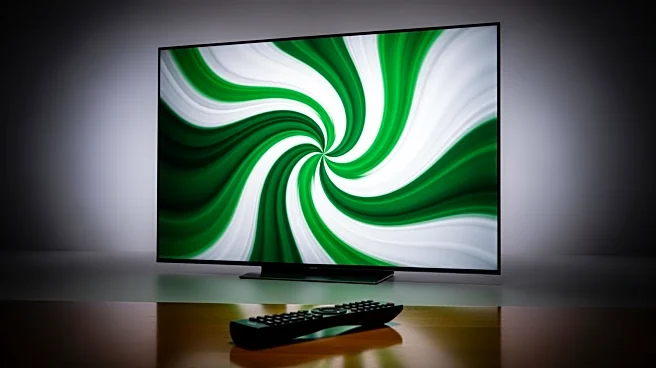What's Happening?
Christopher Sanchez, a key pitcher for the Philadelphia Phillies, expressed frustration over a missed strike call during Game 4 of the National League Division Series against the Los Angeles Dodgers. Sanchez, who had a strong regular season with a 13-5 record and a 2.50 ERA, pitched six scoreless innings before a controversial call in the seventh inning led to a walk and subsequent hits, ending his day on the mound. The missed call, acknowledged by home plate umpire Mark Wegner, contributed to the Dodgers tying the game and eventually winning in the 11th inning. Sanchez shared that Wegner apologized for the error, highlighting the pressure of the situation.
Why It's Important?
The missed strike call in a high-stakes playoff game underscores the critical role of accurate officiating in baseball. For the Phillies, the call had immediate consequences, potentially altering the outcome of the game and their postseason trajectory. The incident has reignited discussions about the reliability of human judgment in sports officiating and the potential benefits of automated systems. The introduction of the Automated Ball-Strike (ABS) System next season aims to reduce such errors, promising more consistent and fair outcomes in future games. This development could significantly impact how games are managed and perceived by players and fans alike.
What's Next?
With the ABS System set to be implemented next season, pitchers like Sanchez may find relief in the promise of more accurate strike zone calls. This technological advancement is expected to minimize human error and enhance the integrity of the game. As teams prepare for the next season, the focus will likely shift to adapting to this new system and understanding its implications on game strategy. Stakeholders, including players, coaches, and league officials, will be closely monitoring its effectiveness and impact on the sport.
Beyond the Headlines
The introduction of the ABS System represents a broader shift towards technology-driven solutions in sports, aiming to improve fairness and accuracy. This change may influence other sports to consider similar technological integrations, potentially transforming how games are officiated across various disciplines. The ethical considerations of replacing human judgment with automated systems will continue to be a topic of debate, balancing the benefits of precision with the value of human oversight.










